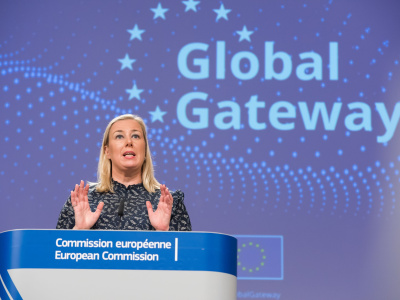
Engaging the European private sector in EU development cooperation and finance
Europe’s private sector should help deliver on the objectives of the EU’s Global Gateway strategy. Karim Karaki, San Bilal and Jeske van Seters look at how the EU can best engage the private sector in its development policy and financial set-up.
Summary
Donors have made private sector engagement in development a strategic priority, recognising the role it can play in development, and acknowledging that governments’ budget and capabilities will not be sufficient to achieve the SDGs. At the EU level, the private sector is expected to help deliver on the objectives of the Global Gateway strategy, based on a Team Europe approach.
This paper aims to shed light on the place of the European private sector in EU development cooperation and development finance, notwithstanding the fact that supporting the European private sector is not an end, but a means to foster more sustainable and impactful development in partner countries. It provides concrete recommendations for EU policymakers on how the European private sector engagement could be best articulated in the Global Gateway strategy to achieve development (economic and geostrategic) impacts.
Moving forward, the EU should prioritise four areas to engage the European private sector, which include:
- ensuring that the principle of untied aid remains a key principle of EU development cooperation;
- coordinating better the public support for development objectives and for European economic and commercial interests while respecting a clear separation of mandates;
- ensuring the inclusiveness of the European private sector engagement in development by strategically involving small and medium-sized enterprises and smaller EU member states’ private sector; and
- providing pragmatic mechanisms and clear strategic entry points for the European private sector to engage in development activities.







